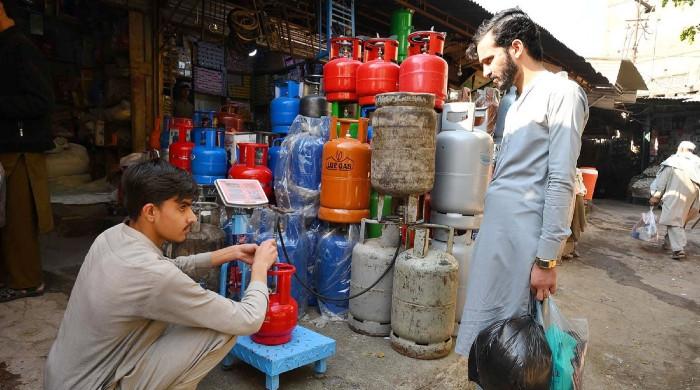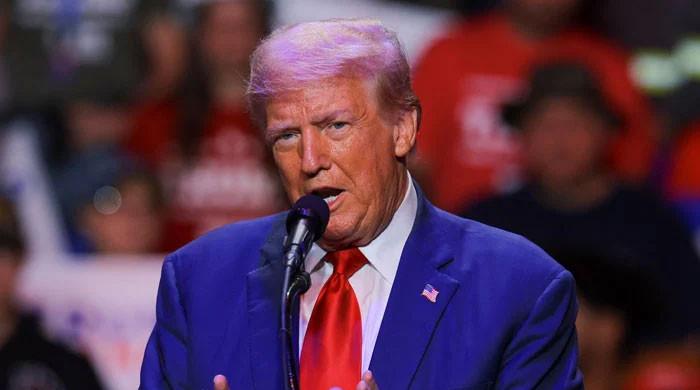Pakistan less affected by Trump's global tariffs: Karachi conglomerate chairman
Pakistan's exports are still low, while imports are high, so effect of tariffs is smaller, says Dhedi
April 10, 2025

KARACHI: Chairman of a large Pakistani conglomerate, the AKD Group, Aqeel Karim Dhedhi said on Wednesday that Pakistan has not been hit as hard by global tariffs as other countries.
US President Donald Trump’s tariff plan targets imports from nearly every country and includes levies of at least 10%. The move has rattled Wall Street and drawn criticism from experts who warn it could raise costs and potentially trigger a global recession.
Trump has often cited unfair trade practices as justification for increased tariffs, claiming they will spark a resurgence in American manufacturing.
"Tariffs have created problems around the world, and while Pakistan is also affected, the impact here is not as severe," said Dhedhi in his interview with Reuters.
"Pakistan's exports are still low, while imports are high, so the effect of tariffs is smaller," Dehdi said, adding that some inflation is expected, but not on the same level as in other countries.
Dhedhi also pointed to the performance of the stock market. “The stock market in the whole world has fallen down by 14% to 20%, If you talk about Pakistan, then market fell maximum by 5% from its peak," he said. “We are in a better position, and the future doesn’t look bad,” as Pakistan’s exports now would increase in mining side, livestock, dairy and IT sector, he added.
Pakistan's benchmark share index slumped 5% on Wednesday following the tumble in global markets.
A 45-minute market halt was triggered following the slump. However, the benchmark index rose last week after Pakistan slashed energy tariffs for domestic and industrial users, despite global markets plunging following the US decision to place new tariffs on trade with countries.
Dehdi warned that higher tariffs could lead to inflation. “When there is inflation, interest rates will rise, risen interest rates will cause unemployment,” he said. He added that rising interest rates could reduce bank deposits, and if money flows out, Pakistan’s reserves might drop slightly.
Commenting on the impact of US tariffs on Pakistan, Dr Khaqan Najeeb, former adviser to the Ministry of Finance, has said the tariffs would put additional pressure on the national economy.
Talking to Geo.tv, Najeeb also urged the authorities concerned to focus on enhancing local business productivity and revamping the energy sector.
"With a trade volume of nearly $7 billion with the US, Pakistan must now focus on strategic negotiation and improving local business productivity. Only through structural reforms, like revamping the energy sector, can Pakistan hope to ease the strain caused by this tariff imposition,” he said.
Abdul Rauf Shakoori, a corporate lawyer based in the US, argued that Pakistan must intensify its diplomatic efforts to address the issue. He explained to Geo.tv that these tariffs, which are part of Trump's 'America First' agenda, could have serious ramifications if not tackled proactively.
“Pakistan should prioritise negotiating with the US government for tariff reductions. The goal should be to emphasise the mutual economic benefits of continuing trade relations and the disruption that these tariffs will cause not only to Pakistan but to the global supply chain,” Shakoori suggested.
Maleeha Lodhi, Pakistan's former ambassador to the US, shared a similar perspective. She argued that the increased tariffs will inevitably make Pakistani goods more expensive in the US, which will likely lead to a reduction in demand.
However, she highlighted the opportunity for Pakistan to play a larger diplomatic role by leveraging the US-China trade war to its advantage.











